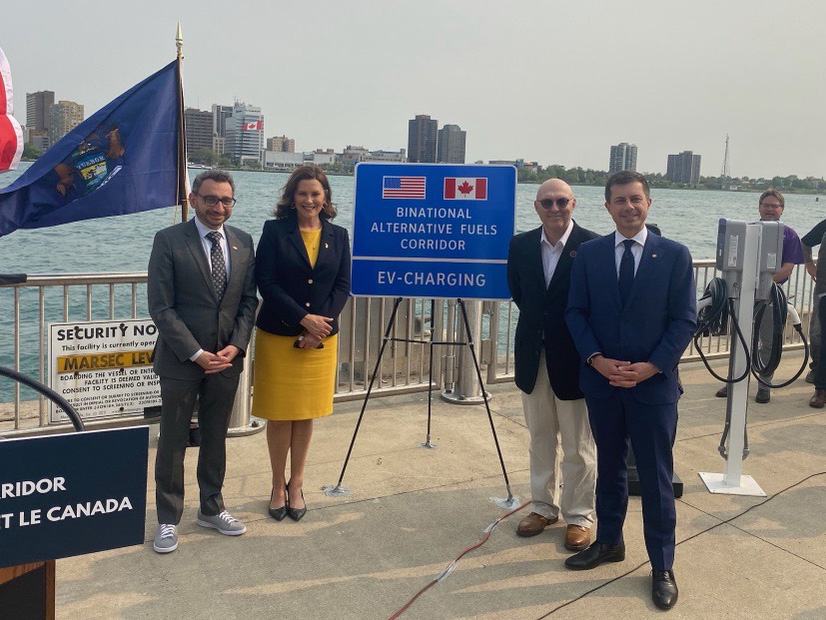
Senior officials from the U.S. and Canada were in Detroit on Tuesday to announce the first Binational Electric Vehicle Corridor, which will stretch from Kalamazoo, Mich., to Quebec City, Quebec.
The corridor will feature fast-charging stations every 50 miles along the roughly 900-mile stretch between the two cities. The announcement featured U.S. Transportation Secretary Pete Buttigieg, Michigan Gov. Gretchen Whitmer (D) and Canadian Minister of Transport Omar Alghabra.
“The U.S. and Canada have long enjoyed a productive partnership on transportation issues, and in that spirit we are proud to announce the first ever U.S.-Canada EV corridor,” Buttigieg said. “With historic investments in EV infrastructure from the Biden-Harris administration and the Canadian government, we are creating a new generation of good-paying manufacturing jobs, making it possible for drivers everywhere to reap the benefits and savings of these vehicles while helping us fight climate change.”
The Biden administration has a goal to have 50% of all new cars be electric vehicles by 2030 with support from the Inflation Reduction Act, Infrastructure Investment and Jobs Act, and CHIPS and Science Act, which have helped spur hundreds of billions of dollars in private-sector investment in EVs. The IIJA includes $7.5 billion in federal funding to help build a national network of 500,000 public EV chargers.
In Canada, one in 10 cars purchased is an EV.
Officials said the new binational corridor will help move passengers and goods along a key economic route.
“There’s nothing more ‘Pure Michigan’ than accidentally driving into Canada, and now that journey will be electric on either side of the border,” Whitmer said. “I am proud that we are working together to build up electric vehicle charging infrastructure. With the resources headed our way from [the IIJA] and the bold investments Michigan automakers are making right here in Michigan, we will build and lead the future of mobility.”
Michigan this month issued a request for qualifications seeking teams to design, build, operate and maintain EV charging stations across the state, the first part of its efforts to tap into $110 million through the National Electric Vehicle Infrastructure (NEVI) program. The deadline to submit applications is June 6.
In announcing the launch of the request, Whitmer said the program will help move NEVI funds into state communities to get the chargers set up efficiently.
Detroit also announced a change in its plans to roll out EV charging stations at 60 sites downtown and in recreation centers, saying the municipal government will lead the effort instead of leaving it to the private sector. The city is “going full bore” on EV charging development, Tim Slusser, Detroit’s director of mobility innovation, told Axios Detroit.



